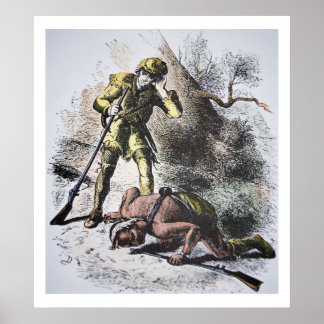This is the first American novel on his list and it is Poe's only novel. That seems to be the only reason McCrum picked this one for the honor of being the first Yank title. One thinks this because the below-pulled quote from McCrum's column cites almost entirely poets, who admire Poe's poetry -- and lordessa help us, supposedly Poe's dipsomaniacal, tubercular, impoverished peregrinating (short) life.
Poe's The Narrative of Arthur Gordon Pym of Nantucket is little known, and less read. I read it as part of my self-directed education program in the history of the novel, but I've had no urge to re-read it since. I never even bother to think about it unless involved again with some aspect of literary history, such as defending the greatness of Moby Dick, whereas I refer in my thinking to Cooper constantly for so many reasons, from the history of the nation regionally, politically and culturally, to the history of the movies and television.
He begins his argument with this:
But it was Edgar Allan Poe, born 1809, who signals the beginning of what would become a great Anglo-American literary dialogue. Poe was original in ways that Irving and Fenimore Cooper never were. As well as being the first American writer to attempt living exclusively by his pen, he is also the archetype of the romantic literary artist. Henry Miller, Jack Kerouac, William S Burroughs, and even Hunter S Thompson all owe something to Edgar Allan Poe. His nomadic, boho style and tortured, exigent career continue to exercise a powerful allure on any young American writers who see themselves as outsiders. In Britain, among later Victorian writers, Wilde, Stevenson, Swinburne and Yeats all responded to his unique imagination.However, Cooper and Irving were making a living entirely by writing before Poe failed spectacularly to do, thus I'm not swayed by his arguments. Even so, I find them, like the weekly column thought provoking about the novel. And I really enjoy having this opportunity to explore contrasting viewpoints about the history and influence of the novel in the U.S. and England.



No comments:
Post a Comment